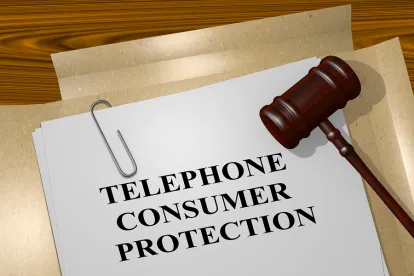Two courts recently examined whether professional plaintiffs had standing to assert TCPA claims. Their decisions betray a continuing confusion concerning what it is that gives plaintiffs—particularly serial plaintiffs—standing to sue. See Cunningham v. Florio, No. 17-0839, 2018 WL 4473792 (E.D. Tex. Aug. 6, 2018); Morris v. Hornet Corp., No. 17-0350, 2018 U.S. Dist. LEXIS 170945 (E.D. Tex. Sept. 14, 2018).
Because both decisions refer to Stoops v. Wells Fargo Bank, N.A., 197 F. Supp.3d 782 (W.D. Pa. 2016), a few words about that case are in order. The Stoops case is perhaps the high-water mark for contrivance under the TCPA. As our regular readers will no doubt recall, the plaintiff in Stoops admitted at deposition that she had created a “TCPA business” by buying dozens of cell phones and then choosing an area code that she knew would make debt-collection calls much more likely. Id. at 798. Because it was undisputed that “her only purpose in using her cell phones is to file TCPA lawsuits,” the court concluded that any calls she received were not “a nuisance or an invasion of privacy,” id. at 800, and any economic injuries she claimed had been “manufactured” in order to “receive more calls, thus enabling her to file TCPA lawsuits.” Id. at 802. As a result, the court held, the plaintiff had neither constitutional nor prudential standing. Id. at 803-06.
The facts of the Stoops case are helpful because they highlight that not every plaintiff has standing. But they are also unhelpful because they have become—wrongly, in our view—the standard against which other plaintiffs have been measured. Two recent cases demonstrate just that.
The plaintiff in the first case—Craig Cunningham—has filed more than 100 lawsuits, petitioned the FCC to require written consent for informational calls, and encouraged others to file TCPA claims “for fun and profit.” In this case, he alleged that the defendants had violated the TCPA by making autodialed telemarketing calls without his prior express written consent. The defendants moved to dismiss and argued that the plaintiff lacked standing because he had welcomed the calls (as he had purposefully kept his number off of the Do-Not-Call Registry) and may even have “baited” the defendants into making them (as he had obtained a “representation agreement” from one of them). Cunningham, 2018 WL 4473792, at *2-4. Although the court agreed with the premise of Stoops—i.e., that a plaintiff does not have standing if she has not suffered a true nuisance or invasion of her privacy—it found that it could not rule on this issue “at this early stage in the litigation.” Id. at *5. The defendants may renew this argument after building their record, but the cost and inconvenience of asymmetrical discovery must make that cold comfort.
The plaintiff in the second case—George Morris—has, according to the defendant, filed dozens of TCPA cases, taught classes on filing TCPA cases, considered franchising his TCPA business, and listed his profession on a prominent social media site as “Pro Se Litigant of TCPA lawsuits.” Morris, 2018 U.S. Dist. LEXIS 170945, at *15. The defendant moved for summary judgment and argued that he lacked standing because he was a “serial” litigant who had not “suffered an invasion of privacy,” as his “sole intent was to extract settlements from telemarketers.” Id. at *14-15. The plaintiff opposed that motion by citing his own testimony about being “annoyed, disturbed, and bothered” by the calls. Id. at *10-11. Although this court also agreed with the premise of Stoops, it found that the plaintiff had standing because he did not own the phone “purely for the purpose of filing TCPA lawsuits.” Id. at *15-16 (quoting Morris v. UnitedHealthcare Ins. Co., No. 15-0638, 2016 WL 7115973, at *6 (E.D. Tex. Nov. 9, 2016)). It closed by observing that “a higher than average understanding of the TCPA and how to recover under the statute” should not “strip a plaintiff of standing.” Id. at *17.
But that is beside the point. Insofar as standing is premised on an alleged annoyance or invasion, the analysis should turn on whether calls were welcome. A plaintiff who plans to sue whoever inadvertently calls her reassigned number, and in fact is overjoyed rather than annoyed when she receives a call, cannot credibly claim to have such standing. It follows that standing is neither destroyed merely by virtue of receiving many calls, nor created merely by virtue of using a phone for other purposes. Rather, standing turns on the plaintiff’s subjective reaction to receiving the call. That may mean that assessing an individual plaintiff’s standing cannot always be done on the pleadings—though it strains credulity to suggest that these particular plaintiffs were annoyed by the chance to further their TCPA businesses. But it should also mean that ascertaining individual members of a narrowly defined class should be all the more difficult.





 />i
/>i

